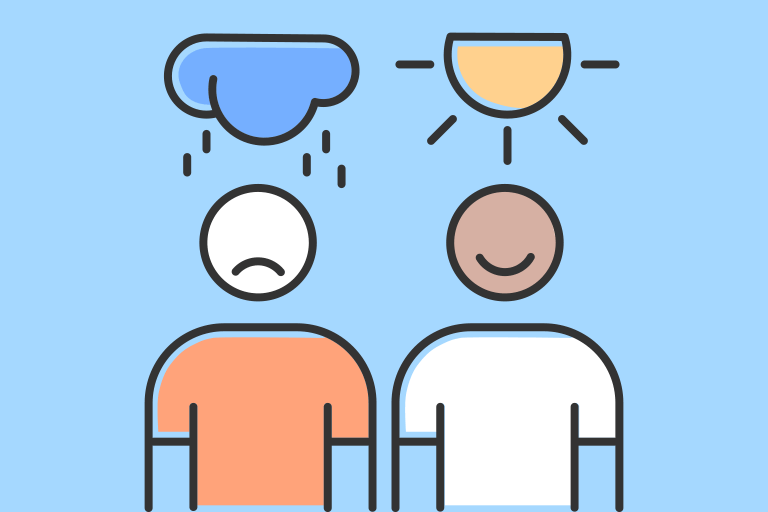
It’s no secret– the days are getting shorter and darker. Whether you’ve struggled with Seasonal Affective Disorder (SAD) in the past or not, keeping your spirits up throughout the winter may be on your mind. In the spirit of being proactive about our mental health, I want to share some insight into this upcoming season through some commonly asked questions…
- How do shorter days impact our mental health?
Darkness decreases the amount of serotonin and dopamine your brain produces, which can lead to feeling more down or even depressed. We can also feel more fatigued because when we don’t get enough sunlight, our body’s circadian rhythm gets disrupted and can overproduce melatonin causing us to feel more fatigued during the day. When the days get shorter, people often have few daylight hours during the day when they are not working. So they are less likely to leave their house in general, which can lead to loneliness and isolation.
2. How common is seasonal depression?
According to research, about 5-6% of the United States population experiences Seasonal Affective Disorder (known as SAD and then 14% experience some symptoms of SAD but not enough to meet the full criteria, often known as winter blues. The farther you live from the equator, the more likely you are to experience symptoms as there is less daylight the father north you get.
3. Do you have any advice or tactics people can try if they know they struggle with mental health this time of year?
Try to go for a walk outside in the daylight at least once a day. Even 10 minutes helps! If you work from home and have options, try to work near a window, or at least spent an hour or so working near it so you can feel the sunshine, even better if its warm enough to sit outside.
Try a happy light, which is a light you can buy that is full spectrum and mimics the sun. They are clinically proven in studies to help reduce feelings of seasonal depression.
Make an effort to leave your house. We sometimes spend way more time inside during the winter because its colder and we don’t like to leave in the dark. Try to get into the habit of continuing to see friends and spend time with people you love, which also produces serotonin and other feel good chemicals in your brain.
Be the first to comment